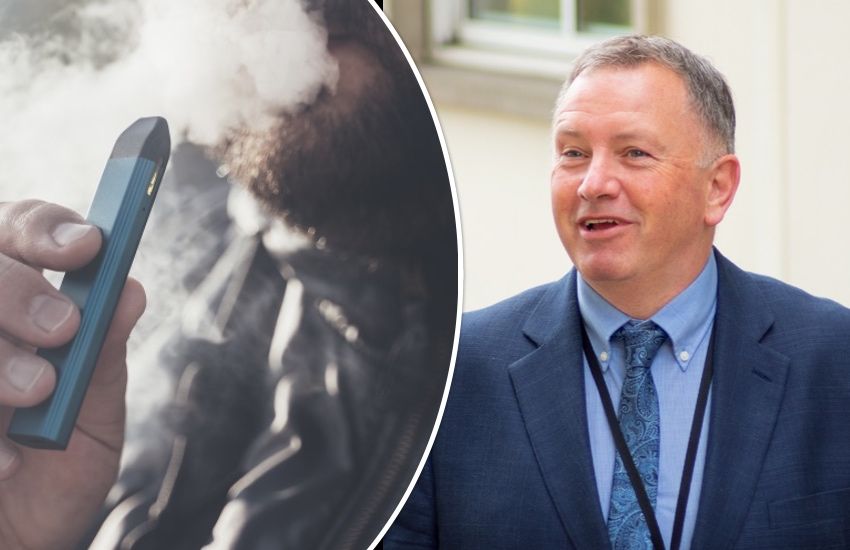


Public Health, the Health Improvement Commission, and Quitline are calling for greater regulation of vaping products locally, but they accept that “there is good evidence that vaping is a positive way to stop smoking and far safer than continuing to smoke”.
In a joint statement to Express, those organisations, whilst not proposing any specific regulations, said they support a review into e-cigarettes which is already an action listed under the States Combined Substance Use Strategy.
They say that “in the absence of regulation there are no controls on the products that can be sold locally”.
The United Kingdom introduced stringent regulations on vaping products in 2016 to ensure safety and quality of products, clear information for consumers, and to protect children.
When asked if they agreed that local vape retailers already sold products licensed for the UK market, the organisations said whilst they expect most do, “it is possible that people can also buy online and from other countries which may not be regulated”.
Whilst it is currently illegal to sell tobacco products to anyone under the age of 18, they argue that “without consistent labeling on vaping products parents and young people may not be able to determine whether products contain nicotine or how much nicotine they contain”.
They added that any regulation would be a “cautious approach,” since the long-term health effects of using vaping products are unclear.

Pictured: It is illegal to sell tobacco products - including e-cigarettes - to those under the age of 18 in Guernsey.
These questions arose after Deputy Liam McKenna asked whether the Committee for Health & Social Care would investigate the effects of e-cigarette use during a States meeting last month.
He said that “[Home Affairs] has been researching the devastating risks of vaping,” arguing that “in these e-cigarettes there’s diacetyl", a chemical which he claimed causes bronchiolitis obliterans or ‘popcorn lung’.
Whilst arguing that this condition is serious and irreversible, Deputy McKenna said “this is the new epidemic coming to the United Kingdom”.
He also cited a seven-year-old Harvard study which found that over 75% of tested e-cigarette liquids contained Diacetyl.
However, that study was focused on the American vaping market and its associated products. In the United Kingdom – which has much stricter regulation of vaping products - diacetyl is already banned from being an ingredient in e-liquids.

Pictured: Deputy Liam McKenna raised his concerns in the Assembly in May.
The UK Health Security Agency (UKHSA) claim that “[diacetyl] had been detected in some e-liquid flavourings in the past, but at levels hundreds of times lower than in cigarette smoke. Even at these levels, smoking is not a major risk factor for this rare disease”.
The UKHSA also argue there is growing consensus behind the evidence that “e-cigarettes are far less harmful” than smoking tobacco. They claim this view is shared by Cancer Research UK, Action on Smoking and Health, the Royal College of Physicians, the British Medical Association and the National Academies of Sciences, Engineering, and Medicine.
This view is also shared by Public Health Guernsey, the Health Improvement Commission, and Quitline.
Public Health England maintain that e-cigarettes are “at least 95% less harmful” than traditional cigarettes.
Comments
Comments on this story express the views of the commentator only, not Bailiwick Publishing. We are unable to guarantee the accuracy of any of those comments.